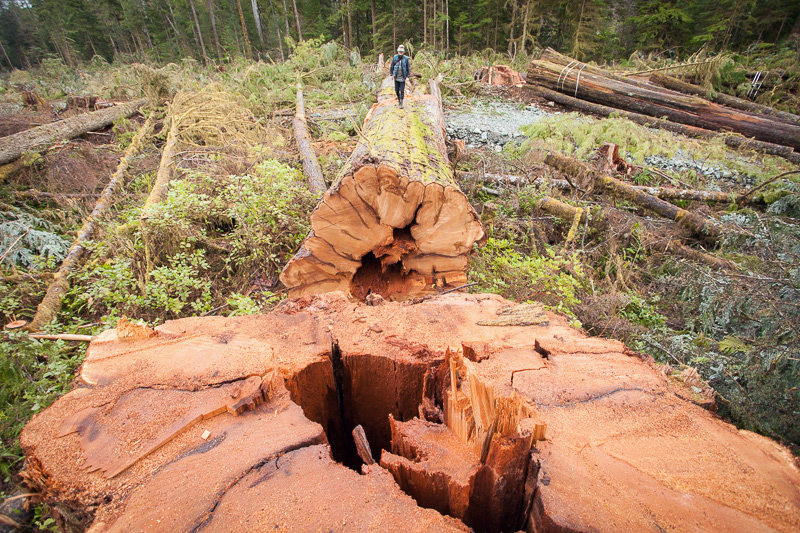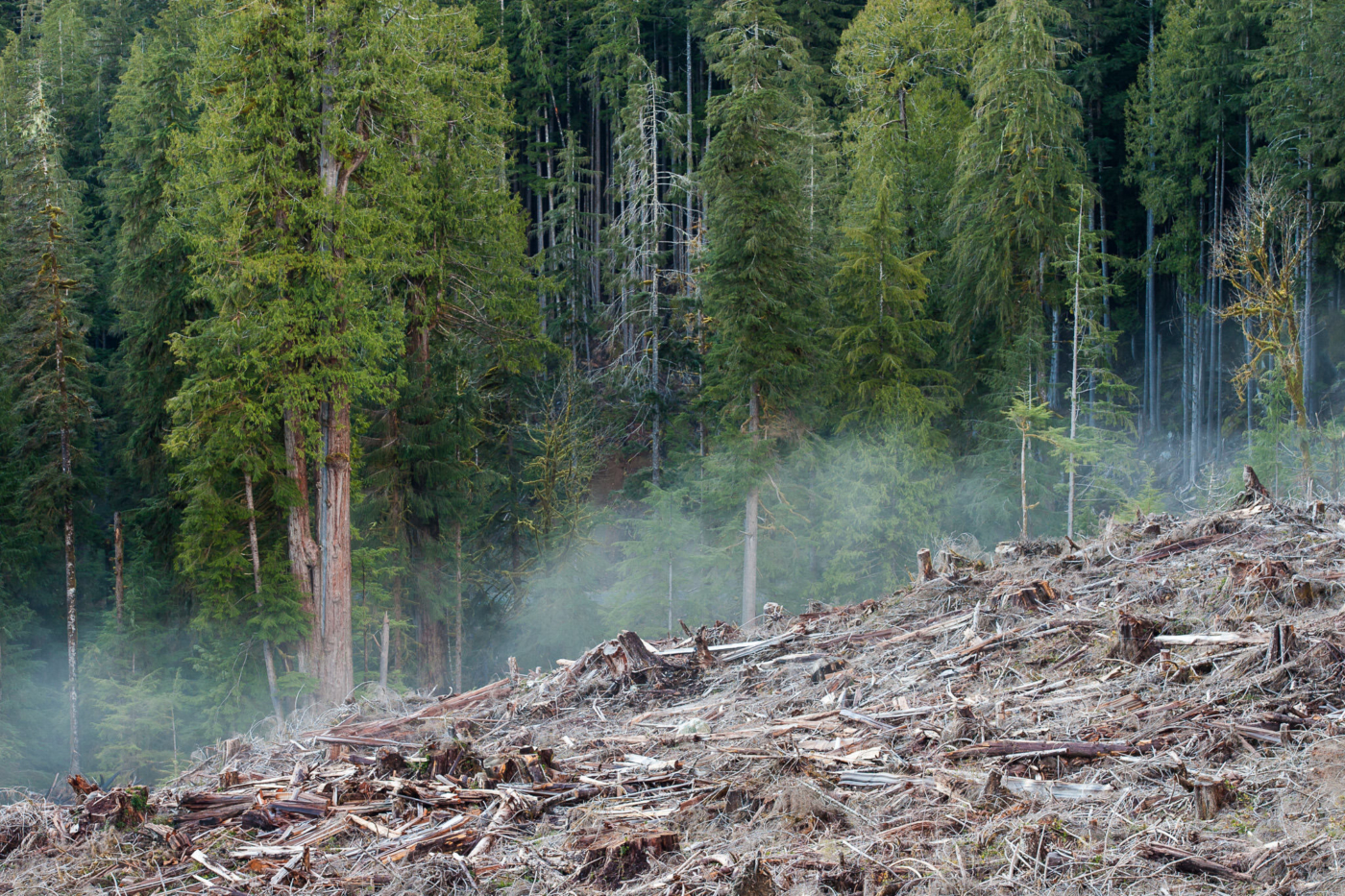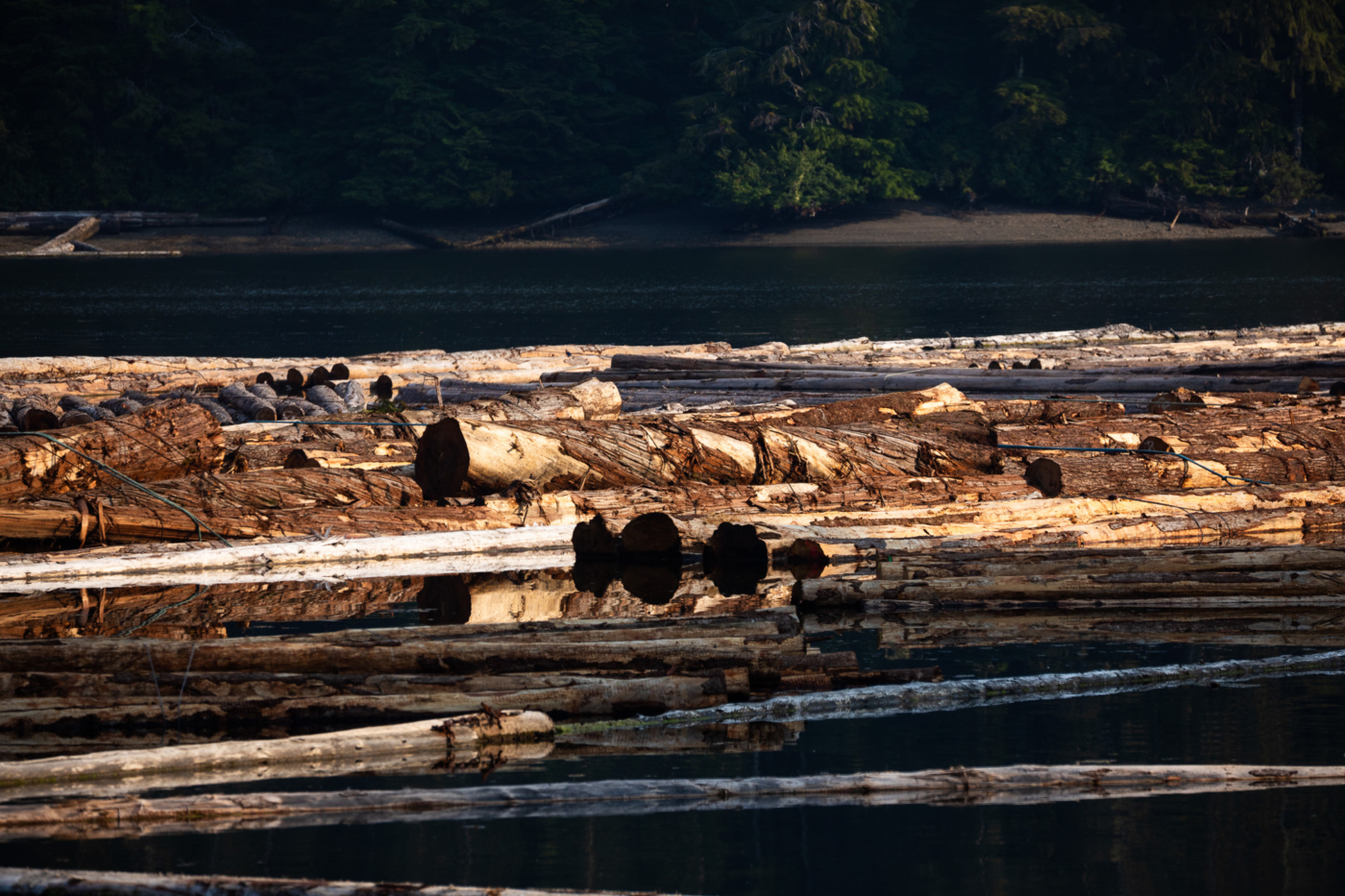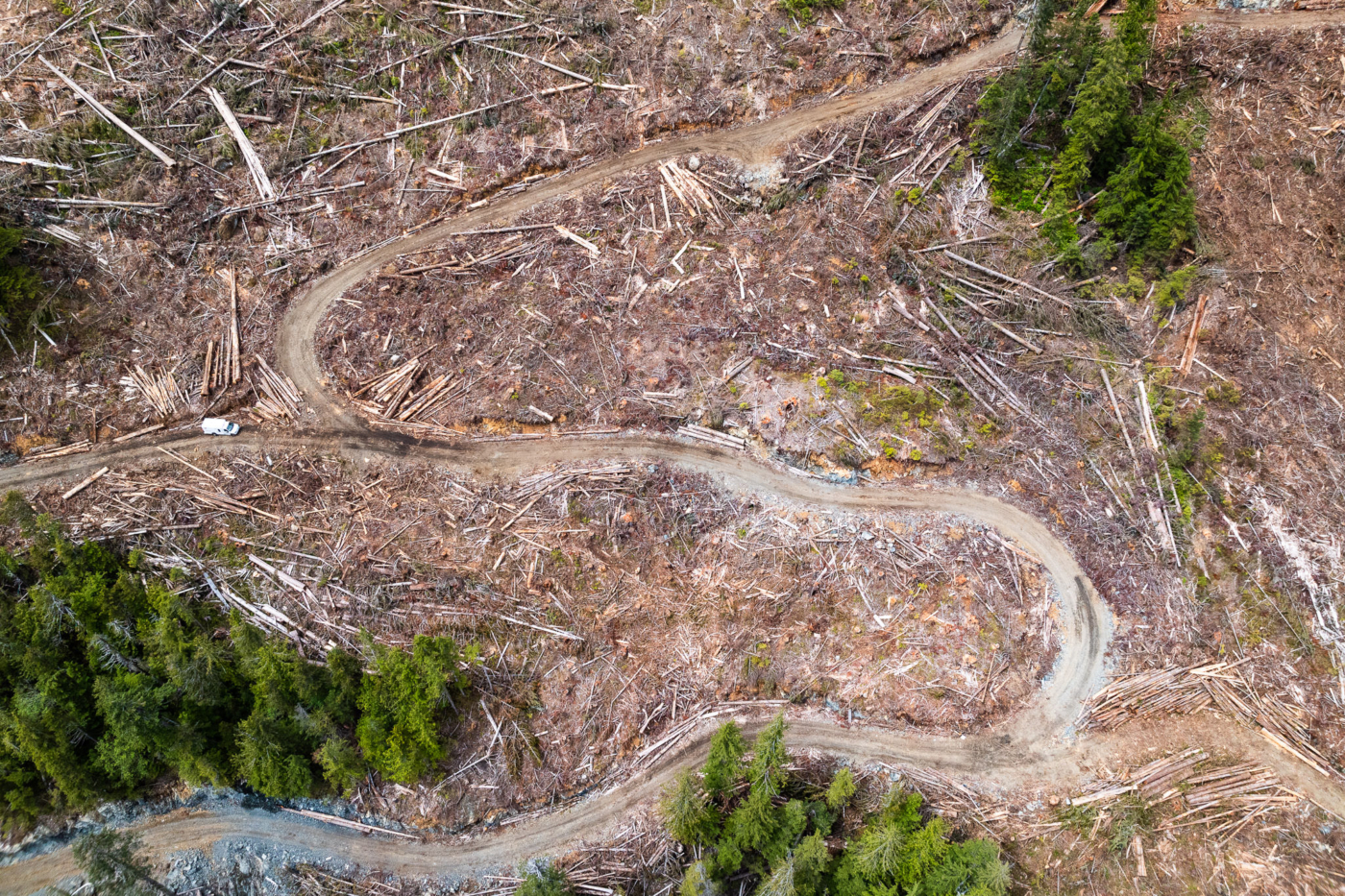 May 21 2014
May 21 2014Submission by Vicky Husband to the BC Government’s TFL-Expansion Plans
Re: Area-Based Forest Tenures Consultation and Discussion Paper
Dear Mr. Snetsinger,
I intend to keep my remarks brief and to the point, partly because I want my comments to be clear and unambiguous, and partly because I believe this consultation process is simply a shameful subterfuge to justify the further privatization of BC’s public forests.
I have always been opposed to the creation of Tree Farm Licences. The public has also consistently rejected this particular form of forest tenure, as Forest Minister Dave Parker found out when the Social Credit government tried to convert all replaceable licenses to TFLs in the 1980s, and Minister Thomson found out when he experienced widespread backlash against Bill 8 last year. The reason is simple: TFLs have always enabled monopolistic corporate control of our public forests and, over the long term, have not maintained the public benefits that were promised when they were awarded. The sorry state of BC’s coastal forests and coastal forest industry, where the majority of current TFLs exist, provides all the evidence needed to reject the creation of any more TFLs: Western Forest Products now monopolizes the coastal log supply; TimberWest continues to hold a TFL despite the fact it has shut down all its processing facilities; and, what remains of our unprotected coastal old growth forests are increasingly being cut down for log exports.
Past processes for awarding TFLs have also been highly suspect, all too often involving questionable actions by elected officials. An extreme example of this was when Forest Minister “Honest Bob” Sommers was convicted in 1958 for taking kickbacks related to the awarding of this form of tenure, which at the time were called Forest Management Licenses. When the name was changed to Tree Farm Licenses in the 1960s many of us felt this was a more accurate description of what these tenures were really all about: farming trees, not managing forests. In reality, TFLs should be called Timber Farm Licences, as they have always and only been about maximizing “timber” cutting at the expense of forest ecosystems. West Fraser Mills’ submission to your consultation process speaks to this issue when the company states clearly that the reason they want an expansion of their current TFL is to effect an immediate increase in their AAC and achieve more efficient “timber utilization.”
In short, TFLs are all about maximizing timber cutting, not forest ecosystem management, and they have always resulted in monopolistic corporate control over our public forests with little long term public benefit. As such, for the sake of the future of BC’s public forest ecosystems, the BC government must not issue any more of these timber farm licenses.
It strikes me that this self-evident conclusion may be precisely why your consultation process isn’t asking the fundamental question of whether more TFLs should be awarded or not. Instead, your discussion paper merely asks for feedback on the evaluation criteria for awarding more TFLs and what benefits the government ought to ask for in return. As your first blog post points out:
“With regard to this consultation, the two questions are: What benefits should government seek if it allows the conversion of a volume-based forest licence to a tree farm licence? What criteria should government evaluate applications against?”
Your failure to ask for public comment on the primary question of whether the government should give itself the power to award more TFLs is precisely why I believe this process is simply a cynical attempt to justify the awarding of more TFLs.
As many other commentators have said, this consultation process is not about area-based versus volume-based forest management. In fact, it’s not about forest management at all. If it were truly about forest management, in the sense of the stewardship of our complex forest ecosystems, the history of TFLs would preclude the government from even contemplating awarding more of these timber farm licenses.
I would add the following observations for your consideration:
1. Issuing more TFLs without resolving aboriginal rights and title issues in this province will only add to the growing tensions between the provincial government and First Nations. Awarding more TFLs now will simply result in more court challenges and higher compensation claims from corporations when land claim settlements are eventually reached.
2. Converting replaceable forest licenses to TFLs without re-inventorying our public forests, especially in areas impacted by the Mountain Pine Beetle epidemic, will result in more forest land base coming under corporate control than the existing volume-based licenses would warrant if the government had better inventory data and our interior forests were not impacted by climate-related pest epidemics.
3. Under the current Forest Act, TFLs can be traded or purchased by foreign national governments, and the BC government can do nothing to prevent this from happening. This potential outcome should be clearly communicated to the general public so they fully understand the implications of turning our public forests into what are effectively tradable commodities in a globalized marketplace in which foreign national enterprises are increasingly becoming the major players (as is evident in BC’s LNG sector).
Mr. Snetsinger, as a registered professional forester I believe you have an obligation to put the health of our public forest ecosystems ahead of the interests of the corporations that are currently pushing the government to give them more direct control over those public forests so they can create more timber farms. As you ought to know, timber farms will never have the genetic and species diversity or the resiliency to adapt to climate change, and the corporatization of our public forests will only make our forest-dependent communities even more vulnerable to the negative consequences of globalization.
As a former Chief Forester for this province I urge you to advise the government to stop trying to justify the creation of more TFLs and concentrate instead on much more pressing forest stewardship issues, such as:
1. Reducing the cut in the Interior MPB impacted areas to sustainable levels. By sustainable I mean levels that will ensure the remaining healthy forests are protected while the pine forest ecosystems ravaged by the MPB grow back.
2. Revisiting and making fundamental changes to FRPA. FRPA must be amended as soon as possible to ensure that all forest ecosystem values are protected and objectives for these values are legally enforceable. Otherwise, as we are experiencing, the government has effectively turned the entire public forest land base into timber farms, as it no longer has the legal means to protect the full range of critical values in our public forest ecosystems.
3. Consulting with the public on a new vision for the stewardship of BC’s public forest ecosystems. Decades of poor forest management, the implications of climate change, and a dramatically changing marketplace all demand that the public be fully engaged in the development of a new vision for the stewardship of their single, largest, renewable and publicly owned resource.
I know that others have made similar recommendations to you; it is my hope that you will include such recommendations in your final report.
For clarity, with respect to the questions you’ve asked in this so-called public consultation process I wish to make my position on TFLs clear:
1. The government has no social license to create more TFLs; the rejection of Bill 8 should have made this abundantly clear.
2. TFLs do not serve the public interest, only private interests.
3. There are no criteria, situations, circumstances, or rationalizations that would justify creating new TFLs.
Vicky Husband







